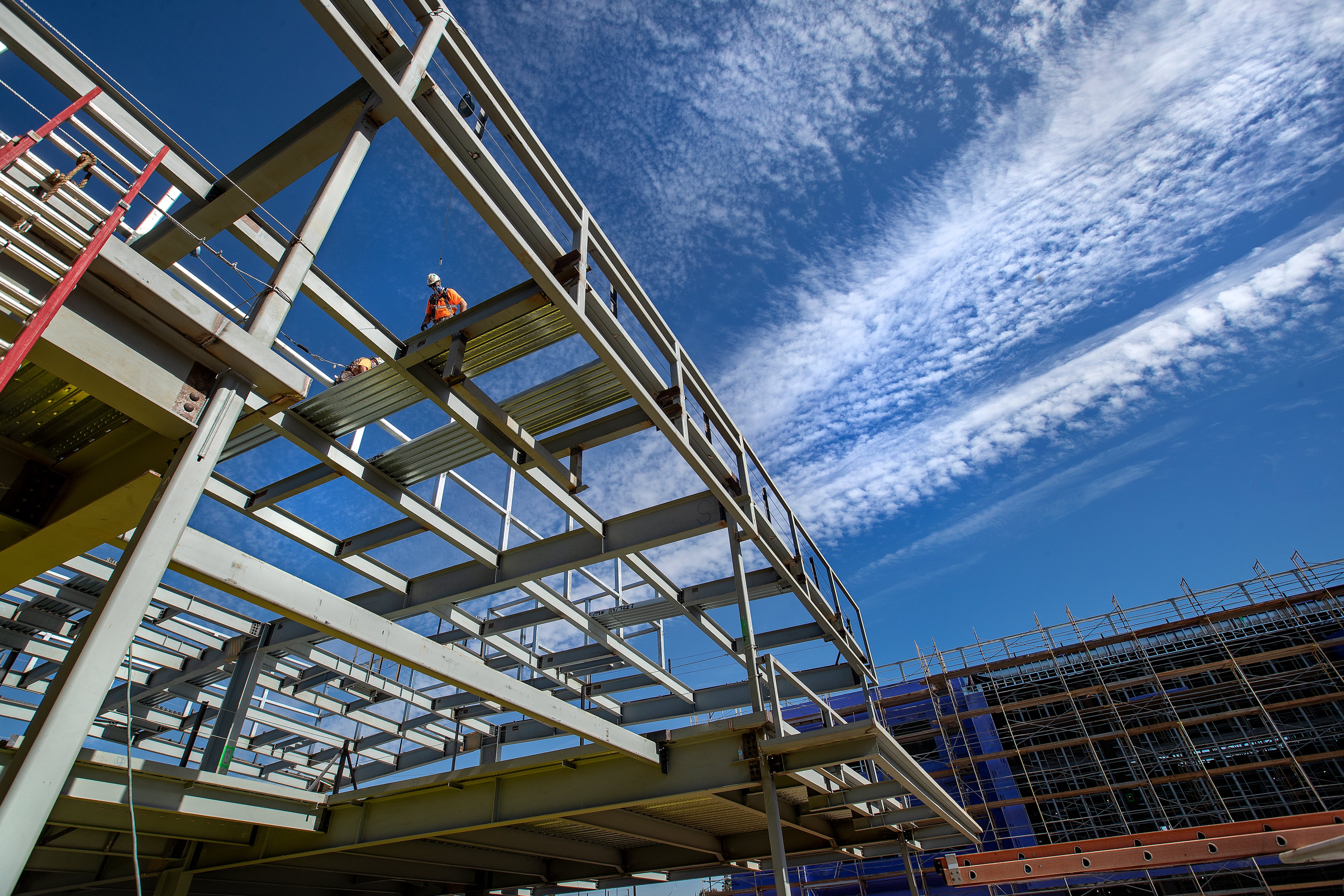Sign up for Chalkbeat Tennessee’s free daily newsletter to keep up with statewide education policy and Memphis-Shelby County Schools.
Tennessee needs to spend about $9.8 billion on repairs, upgrades, or construction to keep its K-12 public school buildings safe and conducive to learning, according to a new state report.
That’s an average of about $6,557 per student over five years, to complement the minimum of $7,075 that Tennessee spends annually per pupil to cover the cost of their education.
And while Tennessee’s nearly 1,700 traditional school campuses are generally in good or excellent condition, the report says more than half of the state’s 95 counties need to prioritize at least one costly capital project for their students, whether it’s building a new school, adding classroom space to an existing campus, or making upgrades across a district — things like new roofs, plumbing, and heating and cooling systems.
The findings, published Wednesday by the education research arm of the state comptroller’s office, aren’t surprising. They’re consistent with previous assessments of the state’s public infrastructure needs, including the most recent inventory conducted in 2022, which ranked education behind transportation and utilities as Tennessee’s costliest needs.
But the latest review by the comptroller’s office, which was requested by House Education Committee Chairman Mark White of Memphis, comes amid competing priorities for educating Tennessee students.
With rising construction costs, momentum has been building among state lawmakers to identify a new revenue source to help local governments and taxpayers shoulder the costs of school maintenance and construction. Those needs escalated in September when flooding from Hurricane Helene caused hundreds of millions of dollars of damage to roads, bridges, utilities, and schools in northeast Tennessee.
But the GOP-controlled legislature, which is responsible for passing an annual state budget, is facing pressure from Republican Gov. Bill Lee to create a statewide school voucher program. Lee’s Education Freedom Act would give tens of millions of dollars in public funding annually to families who want to send their children to private schools.
Lee’s latest private school voucher bill includes proposed new money for public school infrastructure, an attempt to gain support from public school advocates. In addition to giving a one-time bonus of $2,000 for Tennessee’s public school teachers, the bill would redirect 80% of tax revenues from Tennessee’s sports betting industry toward school building needs, especially for emergencies and the nearly 40 rural counties designated as distressed or at risk.
Meanwhile, state economists’ project declining or stagnant revenues next fiscal year, because Lee’s administration pushed through a $1.9 billion tax cut for businesses this spring.
Building needs are acute in Memphis and Nashville
In its separate infrastructure report released in January, the Tennessee Advisory Commission on Intergovernmental Relations identified 18 school buildings, including 11 in Nashville, that are in poor condition.
This week’s comptroller’s report said it would cost $2.3 billion just to upgrade schools from poor or fair condition to good or excellent condition.
The needs are acute in Memphis, which has some of the state’s oldest school buildings. Leaders there are struggling under the weight of a long list of maintenance and construction projects.
While no buildings in Memphis-Shelby County Schools are rated in poor condition, 45 are considered in fair condition. That means they are structurally sound but require maintenance or repairs to meet building code or functional upgrades to improve their use.
In addition, the Memphis district is trying to build two new high schools in Frayser and Cordova, but the $385 million price tag for both projects may put at least one of them in jeopardy.
“We can’t afford two new high schools right now,” school board member Amber Huett-Garcia said Tuesday night during a workshop where Superintendent Marie Feagins fielded questions about their status.
Huett-Garcia said the district is operating in a “fiscally constrained environment” that recently required leaders to reallocate $94 million for operational expenses that originally was intended for school maintenance.
“Our buildings are worsening,” she added, “and so my fear is that we end up with two half-built high schools.”
District seeks a new funding source for infrastructure
Whether it’s air conditioning problems in the summer, heating issues in the winter, or water fountains and intercom systems that don’t work in any season, Memphis school leaders say a new long-term funding source is imperative for addressing those needs.
Next month, the board is expected to include state infrastructure funding among its legislative priorities ahead of the Tennessee General Assembly session that begins Jan. 14 in Nashville.
To help defray school building costs, the board wants lawmakers to look into redirecting revenues from sales, use, and excise taxes; lottery revenue; or proceeds from the sale and use of state lands.
Feagins said Tuesday that her administration recently completed a yearlong, districtwide building assessment, which will be used for prioritizing all future capital projects.
Tennessee doesn’t set aside revenue for school facilities, as five neighbors do
The state already provides some funding for K-12 capital projects, including facility funding for charter schools, infrastructure stipends for fast-growing districts, and grants to improve building security and energy efficiency.
White, the Memphis lawmaker who asked for the comptroller’s review, also requested a rundown of how other states help local governments pay for school building projects.
Analysts cited three main ways: appropriations, financing assistance, and dedicated revenues.
“Tennessee leverages appropriations and financing assistance but does not specifically dedicate revenues to K-12 capital expenditures,” the report said.
Possible revenue sources include sales and use taxes; tax levies on the purchase of alcohol, nicotine products, and marijuana; as well as proceeds from lotteries or use taxes on timber logging, oil and gas extraction, and public land sales.
According to the Education Commission of the States, 19 states dedicate revenues for school-related capital projects. Five of those states — Alabama, Mississippi, Missouri, North Carolina and Virginia — border Tennessee.
Marta Aldrich is a senior correspondent and covers the statehouse for Chalkbeat Tennessee. Contact her at maldrich@chalkbeat.org.






